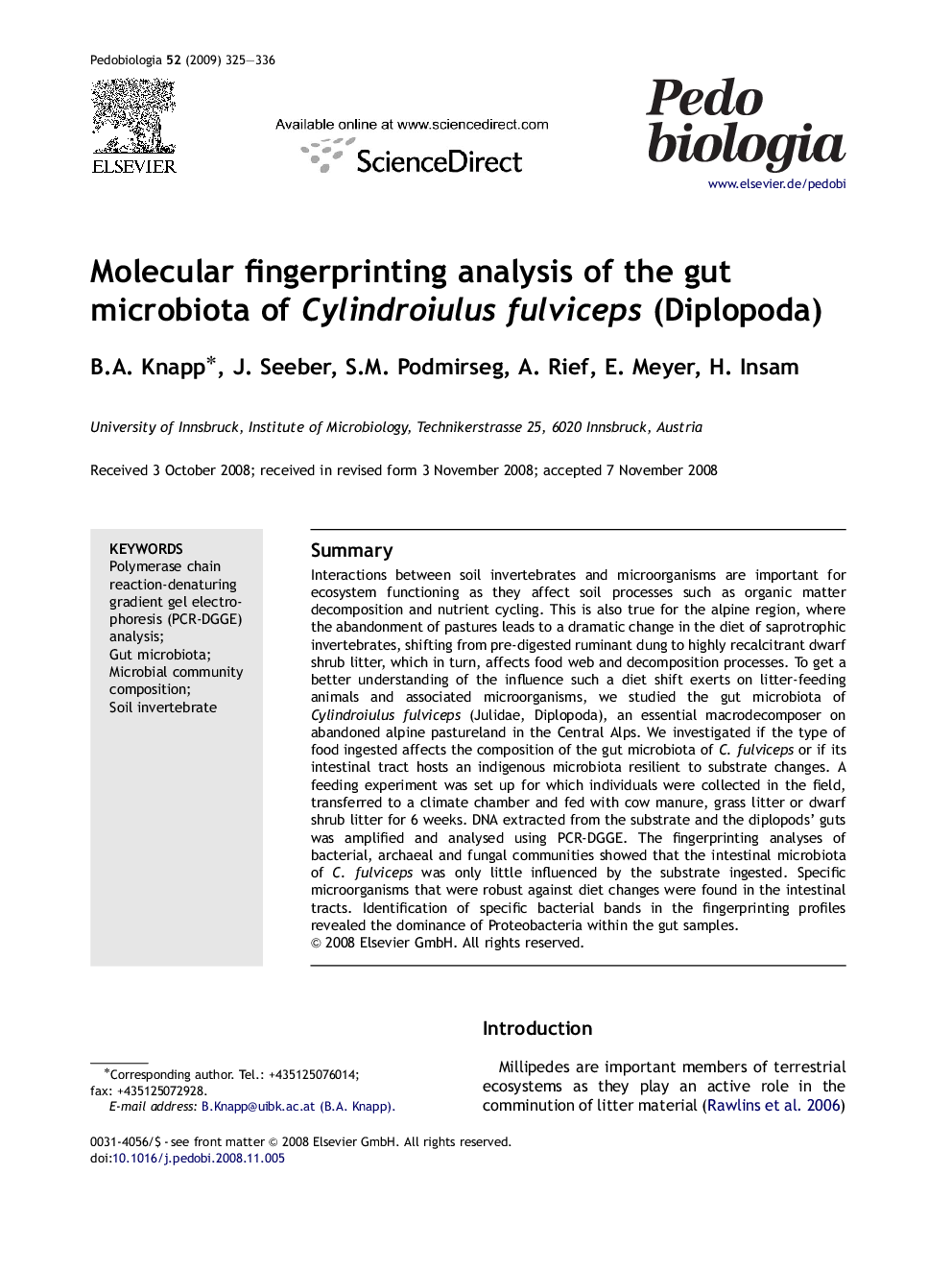| Article ID | Journal | Published Year | Pages | File Type |
|---|---|---|---|---|
| 2061358 | Pedobiologia | 2009 | 12 Pages |
SummaryInteractions between soil invertebrates and microorganisms are important for ecosystem functioning as they affect soil processes such as organic matter decomposition and nutrient cycling. This is also true for the alpine region, where the abandonment of pastures leads to a dramatic change in the diet of saprotrophic invertebrates, shifting from pre-digested ruminant dung to highly recalcitrant dwarf shrub litter, which in turn, affects food web and decomposition processes. To get a better understanding of the influence such a diet shift exerts on litter-feeding animals and associated microorganisms, we studied the gut microbiota of Cylindroiulus fulviceps (Julidae, Diplopoda), an essential macrodecomposer on abandoned alpine pastureland in the Central Alps. We investigated if the type of food ingested affects the composition of the gut microbiota of C. fulviceps or if its intestinal tract hosts an indigenous microbiota resilient to substrate changes. A feeding experiment was set up for which individuals were collected in the field, transferred to a climate chamber and fed with cow manure, grass litter or dwarf shrub litter for 6 weeks. DNA extracted from the substrate and the diplopods’ guts was amplified and analysed using PCR-DGGE. The fingerprinting analyses of bacterial, archaeal and fungal communities showed that the intestinal microbiota of C. fulviceps was only little influenced by the substrate ingested. Specific microorganisms that were robust against diet changes were found in the intestinal tracts. Identification of specific bacterial bands in the fingerprinting profiles revealed the dominance of Proteobacteria within the gut samples.
